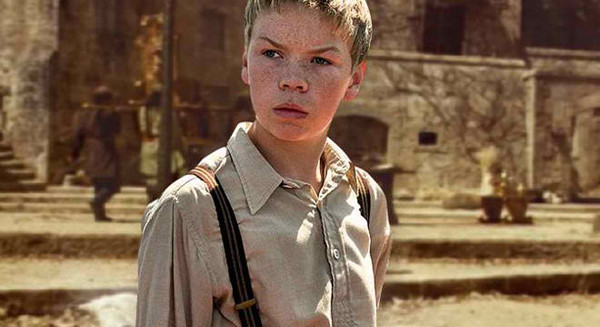The idea of a “left wing” and “right wing” in politics and society is a fluid one, subject to a lot of confusion. You can’t understand liberals unless you know what they want to liberate, and you can’t understand conservatives unless you know what they want to conserve. The things people want to conserve or liberate vary widely from nation to nation, and from generation to generation.
It isn’t enough to say that it’s about order vs. freedom, law vs. liberty. There’s no one anywhere who really wants EVERYTHING to be 100 percent restricted OR 100 percent unrestricted. Each of us, and each society, decides WHICH THINGS we believe should be more or less restricted. The Scandinavian countries, for instance, are extremely wide-open with sexual permissiveness, but exert stern control over some other things. A woman from Norway informed me once that Norway has a law dictating WHAT NAMES Norwegian parents can give to their children! I consider that to be a tyrannical intrusion upon the rights of parents; but it had never even occurred to my Norwegian correspondent to resent this law.
A single essay can’t sort out all the elements of what makes a person or an idea “right wing” or “left wing.” But it may help us toward clarity if I attempt, presupposing what I think to be reasonable modern definitions of the left and right, to identify some places in The Chronicles Of Narnia where C.S. Lewis expressed sometimes liberal ideas, and sometimes conservative ones.
In “The Magician’s Nephew,” Jadis is revealed to have destroyed all life on her home planet by using the tremendous magic spell called the Deplorable Word. Before the book is over, Mr. Lewis has strongly hinted that this evil spell is to be compared to nuclear weapons. An insistence that nuclear weapons are inherently immoral and should never be used at all would be a liberal position on Mr. Lewis’ part. On the other hand, the coldly inhumane approach of Uncle Andrew to his research is very much like today’s left-wing scientists wanting to use unborn human beings as laboratory animals and stem-cell reservoirs (while dishonestly obscuring the fact that they could be using ADULT stem cells WITHOUT killing any babies); therefore Mr. Lewis, a pro-lifer, could be said to be acting as a conservative in his condemnation of Uncle Andrew’s attitude.
The Telmarines in “Prince Caspian” come in for a two-sided rebuke. They are shown to be descended from Earth humans who had committed violence and oppression against persons of another race; accordingly, it is liberalism that gets the credit for condemning this prejudice-related evil. But the society created by the Telmarines in the Narnian world also features a left-wing evil, such that opposing it is the act of a good conservative. I refer to the Telmarine school system, which is dedicated to denying the existence of the supernatural, ESPECIALLY the existence of Aslan. This is very much like the government school system in the United States today, where sex education for kindergarten children is advocated, yet God is not supposed to be mentioned.
The scene where Aslan disrupts Miss Prizzle’s class is PRICELESS.
When the aging Trumpkin in “The Silver Chair” fails to act promptly after Eustace and Jill turn up at Cair Paravel, causing the Talking Owls to intervene to assist the children, Trumpkin could be said to personify unimaginative, foot-dragging, custom-bound authority. Thus Mr. Lewis is wearing his liberal hat when making us understand that Trumpkin, though by no means evil, is in error.
Later, when the Green Witch tries hypnotically to convince the children and Puddleglum that neither Narnia nor Aslan exists, she is reflecting a bad sort of liberalism: the liberal theology, rooted in the so-called Enlightenment, which denies the truth of God’s Word and the involvement of God Himself in our world. Mr. Lewis is being spiritually conservative when he shows her arguments as serving the cause of evil. (And indeed, it is a plain and indisputable fact of real-world history that the ATHEISTIC Communist system has murdered far more people than ANY supernatural religion ever did.)
In “The Horse and His Boy,” we are clearly shown that the overall form of society prevailing in Narnia is morally superior to the culture of Calormen–as when, for instance, the Narnians visiting Calormen are described in a strikingly favorable light: “They were obviously prepared to be friends with whoever was friendly, and didn’t care a fig for whoever wasn’t.” Mr. Lewis was being a true conservative–and frightfully politically incorrect in today’s terms–to say that all cultures are NOT equally good and valid. But don’t despair, my liberal friends. Later in the book, when King Lune talks about the responsibilities of a king as understood by Narnians and Archenlanders, Mr. Lewis is uttering what could be considered a liberal idea through Lune’s mouth: the idea that rulers OWE it to their people to be just. In real-world history, the vast majority of monarchs everywhere have treated their subjects as one big rug to wipe their feet on. Thus, if Lune of Archenland were transported to Earth at any of most periods in history, he would emerge as a liberal hero in the very best sense, wanting to see justice done for the undeprivileged.
These examples should be enough to demonstrate that C.S. Lewis was well-rounded in his approach to social and theological issues, not blindly adhering to the right wing or the left. I try to emulate him in this; and if I ever seem to lean extremely to one side, it’s because I see so many others in society leaning extremely to the other side.
Ut fidem praestem in difficultate!
JOSEPH RICHARD RAVITTS, U.S. NAVY RET.



